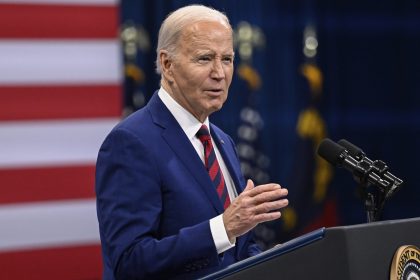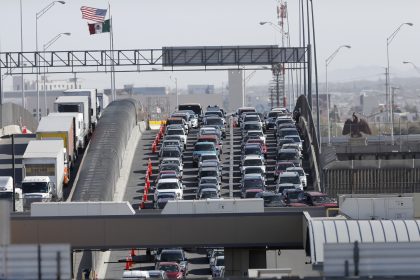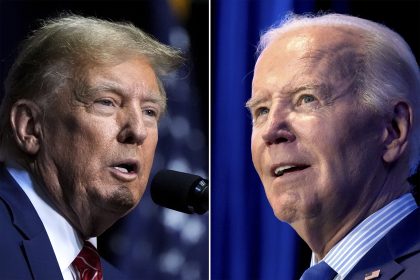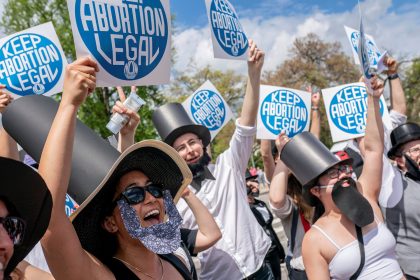Two Thirds of Big Cities Predict Recession, Midwest in Fiscal Decline, Report Says

WASHINGTON – Two in three finance officers in large U.S. cities believe the nation will slip into a recession as soon as next year, testing their resiliency after years of sustained growth, a new report from the National League of Cities says.
Released on Monday, the report points to the weakening of major economic indicators, including in manufacturing, agriculture and service sectors, home sales and business sentiment, and shrinking revenue sources as putting pressure on municipal budgets.
“While the slowing economy is largely a global phenomenon, the U.S.’s trade disputes with China, Canada, Mexico and the European Union have added more uncertainty to the future,” the report says.
The study was done by Christiana McFarland, research director at the National League of Cities’ Center for City Solutions, and Michael Pagano, dean of the College of Urban Planning and Public Affairs and director of the Government Finance Research Center at the University of Illinois at Chicago.
“For the first time in 34 years, we took a closer look at fiscal trends by region and city size to get a more complete picture of what different communities are facing on the ground,” said Clarence Anthony, CEO and executive director, the National League of Cities.
“It is clear that communities across the country — and their residents and businesses — are experiencing varying economic realities. My hope is that local leaders continue to use this report to improve communications and outcomes within their own budget processes, and ultimately, to better support the needs of the people they serve,” Anthony said.
McFarland and Pagano found that general fund revenues have slowed to their lowest annual growth rate since 2013, and for the first time in seven years, cities anticipate a decline in revenue as they close the books on fiscal year 2019.
They said in 2018, total general fund revenue growth slowed to 0.6 percent.
Income tax and property tax revenues also slowed, while sales tax revenue growth was unchanged from the prior year.
At the same time, property tax revenues grew by 1.8 percent, compared to 2.6 percent in FY 2017; while sales tax revenues grew by 1.9 percent, compared to 1.8 percent in FY 2017. Income tax revenues grew by 0.6 percent, compared to 1.3 percent in FY 2017.
But expenditures are also climbing, increasing by 1.8 percent in fiscal year 2018.
While that growth rate is slightly lower than the prior three years, officials also expect it to climb again to 2.3 percent for fiscal year 2019. Infrastructure needs, public safety spending and pension costs are among the most significant expenditures.
McFarland and Pagano said the declining fiscal conditions are sharpest in the Midwest as overall general fund revenues in cities there declined by 4.4 percent in fiscal year 2018.
Much of that appears to be driven by large revenue drops in big cities. Chicago, Illinois, recorded an 11.7 percent revenue decline in fiscal year 2018 while Minneapolis, Minnesota, dropped by 9.6 percent.
Elsewhere across the South, West and Northeast, cities in all population categories experienced slower growth in general fund revenues and property tax receipts over the last year.
Despite the somber tone of much of the report, three out of four finance officers across the country told the researchers they remain confident in the ability of their local government to address expenditures and meet the financial needs of their communities.
City budgets continue to be buoyed by generally healthy local economies and robust tax bases.
Looking beyond 2019, the cities’ fiscal health will be tested by looming economic headwinds, largely driven by trade.
Meanwhile, the cost of healthcare and pensions are rising faster than inflation and placing pressure on spending. Combined with state policies that impede local fiscal autonomy, these factors all have the potential to further constrain city budgets, the report says.
The City Fiscal Conditions survey is a national email survey of finance officers in U.S. cities conducted from May to July of each year.
Officers were asked to report on local fiscal policies, budget pressures and revenue and expenditure data and to give their assessments of their cities’ fiscal conditions. In addition, budget data for 200 of the largest cities were collected directly from online city budget documents. In total, the 2019 data were drawn from 554 cities and yielded a response rate of 40 percent. The data allow for generalizations about the fiscal conditions in cities.
“The key takeaway from this year’s report is that the economy and local fiscal conditions are not one-size-fits-all. While some places are doing incredibly well, others are edging towards the next downturn,” Anthony said. “My hope is that local leaders continue to use this report to improve communications and outcomes within their own budget processes, and ultimately, to better support the needs of the people they serve.”























